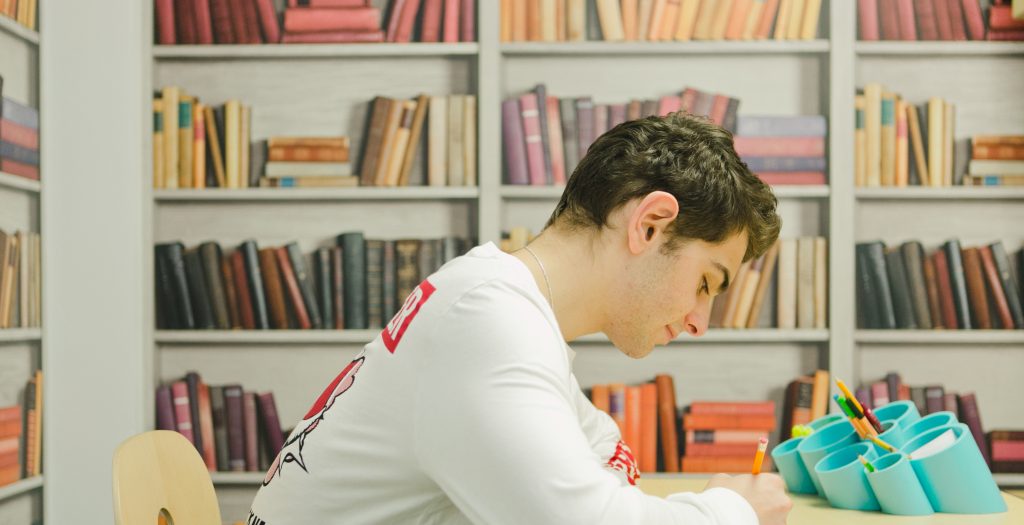
Category: Academic Management


How to be Productive Over Winter Break

How to Build Successful Learning Pods





Learn the important relationship between failure and success.
Understand the personal traits/behaviors associated with successful entrepreneurial performance.
Students will learn who entrepreneurs are, why do people become entrepreneurs, and the types of businesses that exist.
Top 5 Entrepreneurship Lessons from Most Successful Entrepreneurs
Life Lessons
Characteristics of Successful Entrepreneur
Case Study:
Understands the concepts, processes, and systems needed to determine and satisfy customer needs/wants/ expectations, meet business goals/objectives, and create new product/service ideas.
Students will understand and will identify the target market for their potential business.
4 P’s of Marketing
Describe a target market and ways to understand your customers.
Students will learn how to make financial decisions by systematically considering alternatives and consequences.
Improve communication skills.
Students will take responsibility for personal financial decisions.
Think Critically
Turn features into benefits presentation.
The 4 Ps of The Marketing
The History of Marketing
The Federal Trade Commission
Introduction to the world of social media for businesses
Understand the difference between needs and wants.
Understands personal money- management concepts, procedures, and strategies.
Introduction to the financial concepts and tools used in making business decisions.
The students will learn the secrets of the millionaires.
Explain forms of financial exchange (cash, credit, debit_ etc )
Introduction to Personal Money Management
Rich Dad Poor Dad book
Monday-Friday 9am- 12pm
Lauren is a modern-day Mrs. Frizzle! She believes learning should be fun, engaging, and filled with creativity. She served as her class Valedictorian after graduating Summa Cum Laude from UCLA, where she studied theatre and history. She’s worked as an academic instructor for over 4 years, helping students explore everything from screenwriting to the SATs.
Fun Fact: Lauren is an actor and screenwriter in Hollywood in the midst of selling her first TV series! She’s an avid reader, TV watcher, and cheese eater who spends way too much time learning about the British Royal family.
Darrah is a passionate, caring, and dedicated teacher who loves to teach and to make every day a rewarding and fulfilling experience for everyone. Darrah has over 17 years of teaching experience. Her work experience includes a Teacher’s Assistant in the Las Virgenes Unified School District, a Head Teacher at a local private school, and a Preschool Assistant Director.
Keeping younger children motivated is often a difficult task. Her lesson plans are creative, filled with fun learning activities, individualized, and of most importantly, she has an innate ability to create a lasting bond with students.
Fun Fact: Darrah is a fitness devotee and loves spending her free time at the gym. She loves engaging in sports activities with her two sons and husband. Darrah loves animals of any kind, and she is obsessed with her dog Teddy!
Aaron is a passionate and lively tutor. He was once described as having more energy than a five-year-old on caffeine (seriously, it was in an anonymous evaluation). He has been working with students of varying ages for the last 17 years and has helped many to achieve academic success.
Aaron has a B.S. in Physics and an M.S. in Chemical Engineering from the University of California, Riverside. After completing his studies, Aaron was certain that his true passion and calling was teaching. He loves working with students and watching them grow academically and as individuals.
Fun Fact: Aaron has completed five marathons and did four of them in the span of one year.
Tiffany is full of energy and sunshine. She is a passionate and experienced educator who loves to see children succeed and reach their academic goals.
Tiffany earned her Bachelor’s degree in both general and special education from Missouri Baptist University in St. Louis, Missouri, and earned her master’s degree in TESOL from Alliant International University.
Tiffany has over fourteen years of teaching experience in both elementary and middle school, in addition to years of experience working as a nanny, tutor, and camp counselor.
Fun Fact: Tiffany loves to dance and teaches hip-hop dance for fun.
Krissiane is a compassionate, dedicated educator who goes above and beyond to make learning fun for her students. Her creativity and care in individualizing her instruction keep her students engaged and motivated.
Krissiane earned her Bachelor’s of Science degree in clinical psychology from the University of California, San Diego, and is currently attending Antioch University for her Master’s degree in clinical psychology. Her vast knowledge of child and adolescent development and intelligence informs her practice as an educator and makes her a valuable member of our team. Krissiane has worked in an academic setting for eight years. She has tutored students in grades K-12+, including those enrolled in college-level courses. Krissiane has also worked with children and adults with special needs, supporting their academic and career endeavors.
Fun Fact: Krissiane likes hiking, playing basketball and volleyball, and she has traveled to six other countries.
Tess is a friendly and energetic educator who is passionate about helping students of all learning styles achieve success.
Tess earned her Bachelor’s degree in Psychology from the University of California, Santa Barbara, and an Associate’s degree in Applied Behavior Analysis from the College of Applied Human Services. She has 3 years of experience working as an academic tutor, plus years of experience working with children as an instructional assistant, caregiver, and behavior interventionist.
Fun Fact: In her spare time, Tess loves curling up with a good book and relaxing on the beach.
Mickey is a very dedicated, enthusiastic, and patient educator who is committed to teaching every student in a way that works for them as a unique individual. She believes that treating students with the respect, compassion, and empathy that they deserve, helps them to reach their academic and personal goals. Teaching and learning go beyond simply getting a good grade. It is about building confidence, self-esteem, curiosity, and knowledge. She is here to facilitate and support that growth.
She is currently enrolled in two different colleges and working on multiple degrees. She is working towards her Bachelor’s degree in Child Development and Family Studies, with a minor in Gerontology at California State University Long Beach. She is also working on three associate degrees at Santa Monica Community College: Early Childhood Studies, Infant and Toddler Teaching, and Early Intervention Assistant. Mickey has worked with children from infancy into high school over the last nine years.
Fun Fact: Mickey writes children’s bibliotherapy books with her younger brother. These books aim to help children who are going through a difficult time by advocating for mental health and sharing helpful techniques.
Megan is very enthusiastic and passionate about learning. She is an encouraging and versatile educator who aims to motivate her students to achieve their academic goals.
Megan earned her Bachelor’s degree in biology from the University of California in Riverside. She has worked as an undergraduate researcher in a cell biology laboratory during her time at UCR. In addition, Megan has studied abroad at Fudan University and is fluent in Mandarin and Cantonese. She has years of experience as a tutor and peer mentor. Megan loves helping students learn new skills in English, math, science, and Chinese.
Fun Fact: Megan loves dancing. She grew up learning different types of dance styles, such as traditional Chinese Folk, ballet, and contemporary dance.
Max has taught professionally for five years. He has worked with students ranging in age from 10 to 70 in subjects ranging from US History to AP Calculus. Max excels at standardized test preparation for the SAT, ACT, ISEE and more. This breadth of subject knowledge has allowed Max the opportunity to work with students from different backgrounds and with different levels of proficiency in both one-on-one and classroom settings.
Max graduated from the University of Southern California in Los Angeles and holds a degree from the British American Drama Academy in London, England. Max’s focus with his students is to build a solid foundation of knowledge in order to increase their confidence as well as facilitate further study. By fostering these elements, Max gives his students the independence and self-reliance they need to carry themselves through their academic careers.
Fun Fact: Max is an FAA-certified and instrument-rated commercial pilot, as well as an advanced instrument ground instructor. He trains pilots in Los Angeles, CA and Phoenix, AZ.
Marcha is quirky, creative, and full of positivity. She has a passion for building confidence in her students and helping them reach their goals.
Marcha earned her Bachelor of Arts in Music and Bachelor of Science in Engineering Science from the University of Virginia (UVA). She also minored in Astronomy and Computer Science. Marcha has over six years of experience teaching elementary through university students as a teaching assistant, course instructor, tutor, and coaching figure skating to all ages.
Fun Fact: Marcha’s passions lie in performing arts, ranging from singing musical theatre to opera, dancing, writing songs with guitar and piano, and figure skating!
Kelsey is dedicated to helping her students learn and achieve their academic goals. She is a passionate and experienced educator who embraces each student’s unique style of learning and path to success.
Kelsey earned her Bachelor’s degree in both creative writing and anthropology with a minor in ecology from the University of Arizona. She graduated Magna Cum Laude and with English Honors. Kelsey earned her Master’s of Fine Arts degree in creative writing from the University of Southern Maine. Kelsey also earned a certificate to teach English as a foreign language and has taught English in post-secondary and business courses in the Czech Republic. Kelsey has over five years of teaching experience from primary to adult education, focusing on AP English, AP Biology, English grammar, SAT and ACT test prep, creative writing, literature analysis, and reading comprehension.
Fun Fact: Kelsey enjoys writing books for young adults and moved to Prague, Czech Republic for several months to research the setting for her novels. She is currently submitting a novel for publication and applying for PhD programs, despite growing up with dyslexia—a reading difference which should have made pursuing her love of literature impossible. Kelsey aims to teach all her students how to achieve their dreams no matter what may seem to stand in their way.
Jaime is lively and full of pep. He makes every lesson engaging and fun. Jaime is an experienced educator who loves seeing his students succeed and surpass their academic goals.
Jaime earned his Bachelor’s degree in physics from the University of California – Berkeley. At Berkeley, Jaime acted as a peer mentor to his underclassmen through the Society of Physics Students – Berkeley Chapter and worked as a teaching assistant for the University’s Beginner’s Taekwondo course, helping students develop both their academic and athletic potential.
Fun Fact: Jaime loves musicals and can often be caught singing in his free time.
Kendall takes pride in being dedicated & enthusiastic with all of her students. She is an extremely passionate instructor who immensely enjoys watching her children reach new developmental milestones, as well as academic accomplishments.
Kendall earned her Bachelor’s degree in child & adolescent development from California State University, Northridge,and currently working towards pursuing her Masters in Early Childhood education.
Kendall has over five years of experience working in school settings with children from preschool to fifth grade.
Fun Fact: Kendall loves to watch and talk sports, especially about any Boston teams!
Joseph seeks to bring out the best in his students by catering his lessons to their individual way of learning rather than focusing on by-the-book methods. His teaching style relies on creating a calm, casual environment where students can focus and engage with their work without overstressing.
Joseph graduated from UCLA with a Bachelor’s degree in linguistics and philosophy. He has a diverse background in education and tutoring, having worked with kindergarteners, college graduates, and everyone in between. He has taught a wide variety of subjects as well, including test prep and traditional academic subjects, upper-division college courses such as symbolic logic, and extracurricular activities such as chess.
Fun Fact: Joseph enjoys basketball, biking, hiking, and volleyball, and is a big fan of riddles and logic puzzles.
Jennifer is a compassionate and energetic teacher. She finds great joy in seeing her students reach their academic goals and discover an authentic love of learning.
Jennifer is originally from Massachusetts, where she attended college and worked as a classroom teacher for 17 years. She earned a Bachelor of Arts degree in English from Mount Holyoke College and a Master’s degree in Education from Smith College. She began as a middle school English teacher, and then expanded her teaching role in the district working with K-12 students. Jennifer is a member of our reading and test prep teams and is known for her kind nature and the encouraging ways she supports her students.
Fun Fact: Jennifer has traveled to 52 countries and enjoys fashion and interior design.
Goran is a fun-loving academic who has a deep passion for learning. He completed his Bachelor’s Degree in Engineering Physics from UC Berkeley, and has enjoyed sharing his passion for math and physics with his students. He particularly loves to impart a sense of awe and wonder at the complexity of the natural world and the profound connections that our minds can create through introspection and analysis.
Fun fact: When he’s not teaching, Goran enjoys playing video games, surfing and snowboarding.
Gabriela is a fun and personable native Spanish teacher with over ten years of experience working with children and adults. Along with her training and qualifications in teaching, she holds a Bachelor’s in Communications and a Bachelor’s in Arts. She is also an avid traveler and has worked and volunteered as an interpreter abroad. She loves language, and her approach to teaching is creative and practical. To her, the most rewarding aspect of helping others learn Spanish is watching them better themselves and achieve their educational and personal goals, empowering their own lives, careers, as well as their communities through knowledge and cultural awareness.
Fun fact: Gabriela loves storytelling and writing, and became the Moth’s GrandSLAM Champion in Los Angeles in 2019.
Eric is and always has been someone who seeks the beauty and truth in every corner of the human experience. He is an educator that aims to give tools to students from all walks of life so they can thrive on their own personal academic journeys.
Eric’s path has earned him a Bachelor’s degree in Physics from Saint Joseph’s University and teaching certification from Cambridge University. He traveled through China for two years, teaching students of all ages and obtained an HSK III certificate in Mandarin proficiency. His next opportunity found him on the doorstep of this esteemed establishment: Groza Learning Center.
Everyone who loves music, an ever-evolving litany of nicknames, and the finer mechanics of the art of mathematics should come stop by for a session with Eric. Along with gaining a more thorough mastery of whatever you need help in, you never know what other enrichment you can find in his classroom!
Fun Fact: I have a functional music studio in my basement, through which I have produced around 50 full tracks.
Eliza is an educator and artist with a sunny side and a goofy streak who believes that learning should be both fun and challenging!
Eliza earned a bachelor’s degree from Harvard University in Theater, Dance, & Media and African American Studies. Eliza has spent over seven years tutoring students from childhood through college – focusing on the humanities, test prep, and college applications – as well as teaching drama and caring for young children. Multicultural learning and emotional/physical health is always central in Eliza’s educational and artistic work, ensuring that students grow as learners and as people.
Fun fact: In addition to education, Eliza loves hiking, backpacking, art museums, and listening to Bob Dylan at far too loud a volume!
Corey takes pride in helping his students realize they know more than they might think they do, that nothing is ever “too hard,” and there is nothing they “just can’t get.”
He earned his Bachelor’s degrees in English and history as well as a Master’s degree in history from USC, where he also earned a prestigious Fulbright fellowship to study in Germany. He has been teaching both in and out of the classroom for over a decade and has worked with students of all ages, from his own four-year-old twins to college students.
Fun fact: Corey is a published writer and loves reading science fiction.
Brian is full of enthusiasm and imagination. He earned a Master’s degree in writing from Carnegie Mellon University and has been an educator for over 11 years. He loves seeing his students express big thoughts with all the power of the creative, analytical, and rhetorical tools at their disposal.
Fun Fact: When Brian is not helping students master the written word, he is an award-winning playwright and librettist and a non-award-winning baker—even though he totally should have gotten a trophy or something by now for his sourdough rye baguettes.
Brodie is an enthusiastic, bright, and compassionate individual who has a passion for helping students find their success. He empowers them in developing a growth mindset and helps them in gaining tools to become lifelong learners.
Brodie earned his Bachelor’s degree in mathematics for secondary education from UC San Diego and is currently working towards his master’s degree in applied psychology from the University of Southern California. Brodie has taught students from preschool to high school for over 4 years before becoming a Leadership Coach, working with thousands of students and educators throughout the nation to enhance their 21st-century soft skills through experiential learning. Since 2006, Brodie has consistently taught students one-on-one and in large groups to assist them in achieving their academic success.
Fun fact: Brodie is a professional, nationally ranked ballroom dancer. He specializes in American Smooth – Waltz, Tango, Foxtrot, Viennese Waltz – and competes all over the world.
Tatyana’s favorite quote is “When you love what you do, you never have to work a day in your life”- Confucius
Tatyana loves what she does, and it is evident by her passion and dedication to each child, parent, and instructor that is part of the Groza Learning Center. She is inspired by the sparkle in a student’s eyes when he or she “finally understand math” or gets accepted into the school of their choice by passing the admission test that they’ve worked so hard to prepare. To her, that sparkle is priceless. Tatyana is an entrepreneur with over 18 years of experience starting and managing the explosive growth of multiple successful start-ups to multi-million-dollar companies. She also founded one of the highest performing alternative PreK-12 schools in California and has been recognized as an Entrepreneur of the Year by the National Consortium of Entrepreneurship. Tatyana holds degrees in Education, Business Management, Child Development, and Child Psychology. She also participated in the prestigious programs such as Harvard University KSG Executive Education for School Leaders and UCLA MDE.In addition, Tatyana is active in her community; she is an Executive Board member of the local Chamber of Commerce and a member of the National Women Business Association. She serves as a Board Committee Member of the Los Angeles Chapter of the Entrepreneurs’ Organization, where she is working to build a partnership between Cedar Sinai Hospital Research Center, UCLA Hospital, USC Hospital, and prominent Los Angeles entrepreneurs. Tatyana is a masterful leader with expertise in education, business development, and building a strong company culture.
Fun Fact: Tatyana loves to inspire people to be a better version of themselves.